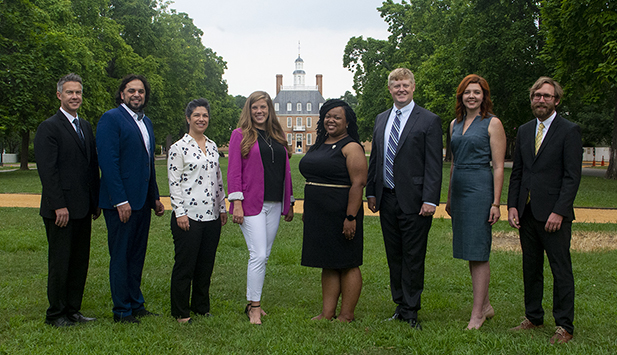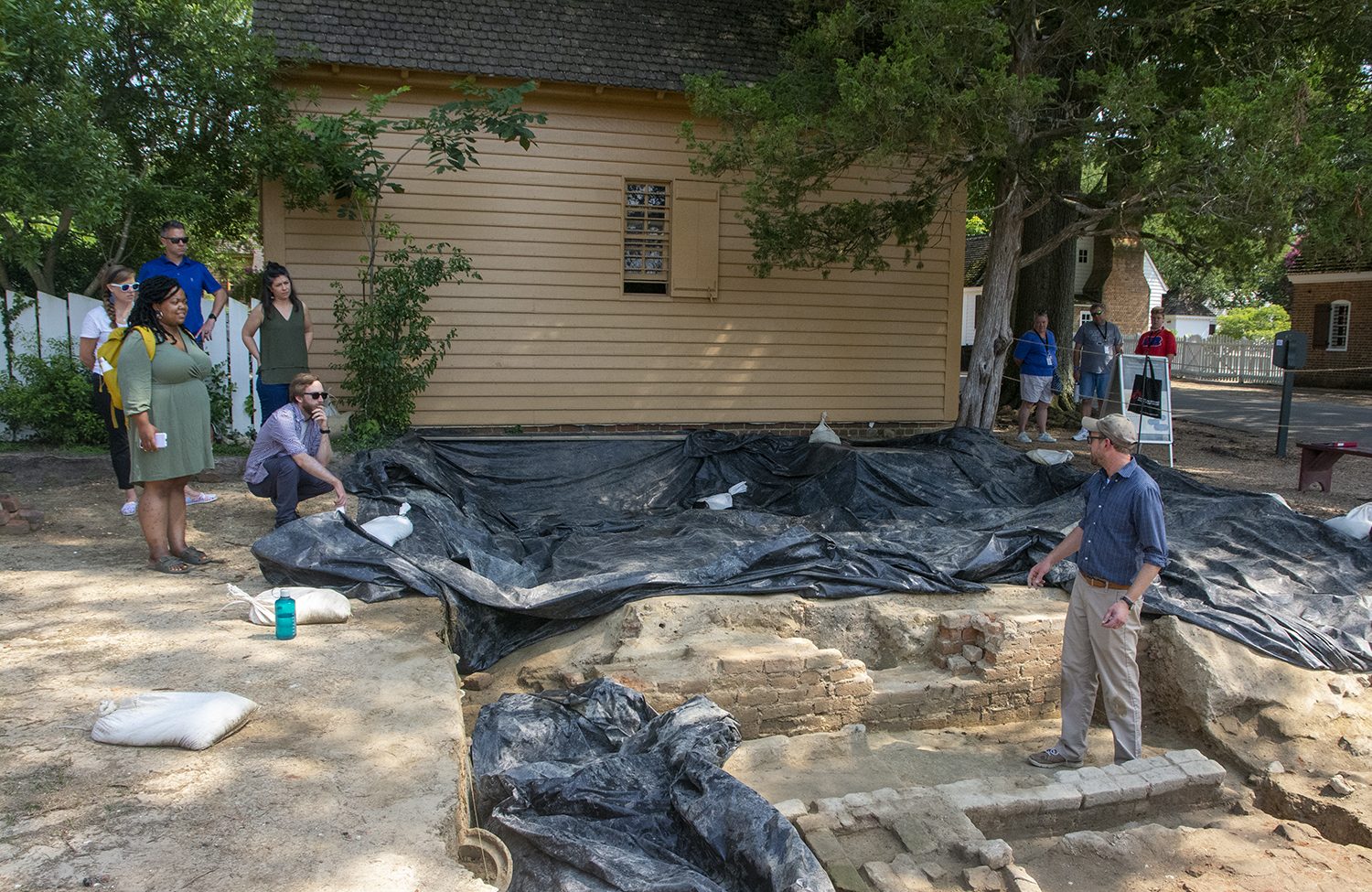THE BJC FELLOWS
2021 BJC Fellows
BJC welcomed the sixth class of BJC Fellows in 2021 to Colonial Williamsburg to hear from historical interpreters as well as BJC staff members and other experts about the historical, legal and theological underpinnings of religious liberty.
The BJC Fellows Program equips young leaders for a lifetime of religious liberty advocacy, and the 2021 seminar was the first in-person event hosted by BJC since the start of the COVID-19 pandemic. Hear more about the experience from the eight participants, and see photos on Facebook or by searching #BJCFellows on various social media platforms. For more on the program, visit BJConline.org/Fellows.
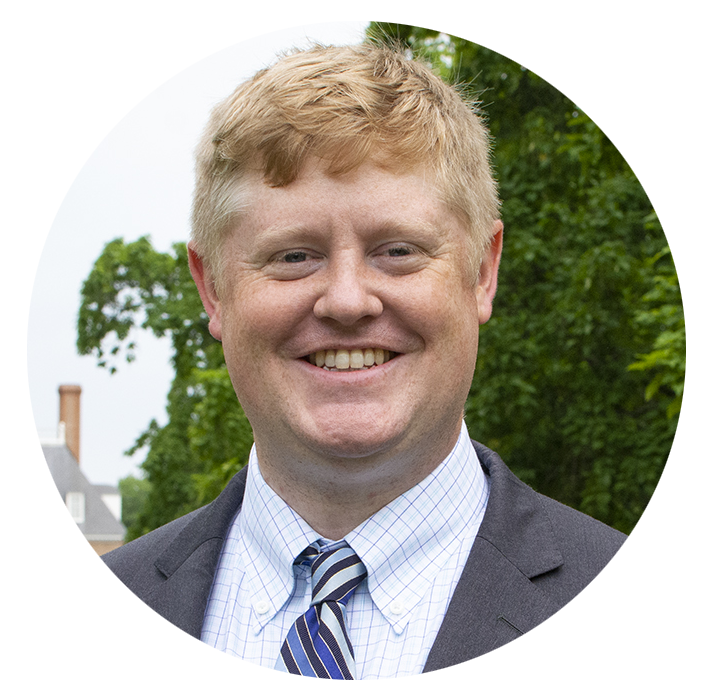
“I think a lot of us came into the week with a strong sense of what religious freedom is and is not, but I know I would have had a hard time articulating it before my time in Colonial Williamsburg.
Andy Brookshire / Dallas, Texas
The BJC Fellows Seminar gave us a vocabulary to have a more nuanced dialogue about religious freedom issues, as well as an action plan to advocate for the version of religious liberty we wish to see in the world.”
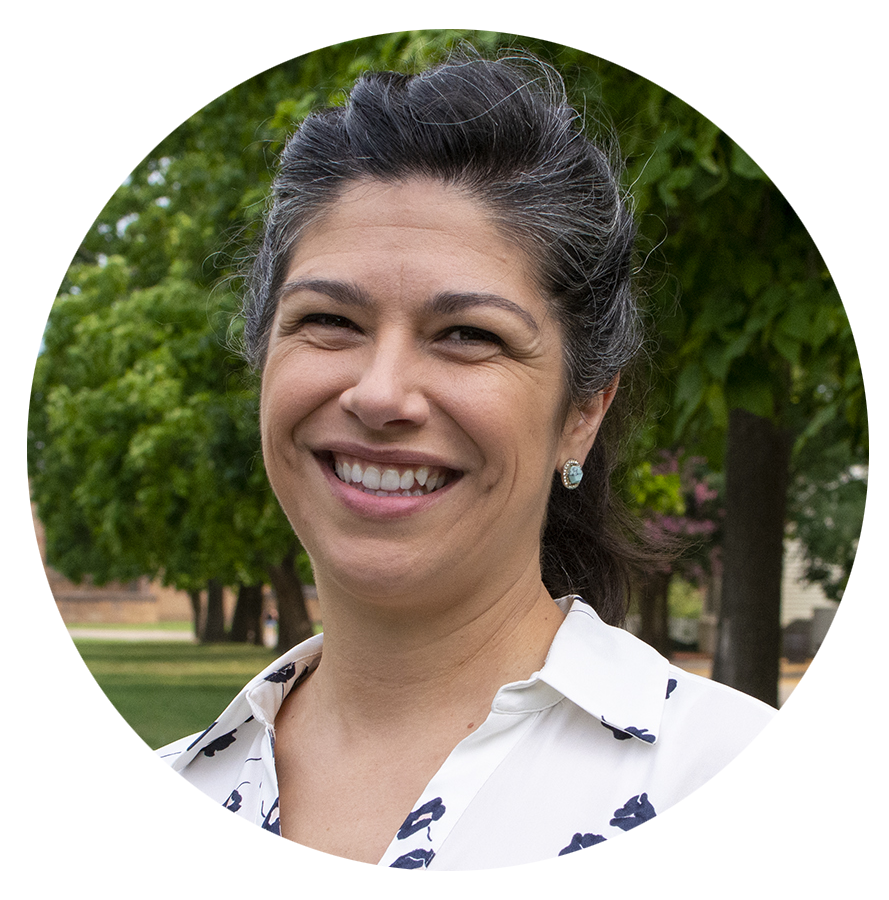
“As we explored the history of our nation, the Baptist tradition and religious liberty in general, freedom was a constant theme. Freedom is often thought of too narrowly and individually. If we are to achieve true religious freedom, we must look beyond ourselves and lift up the most marginalized among us.
Kat Kimmel /Memphis, Tennessee
Religious freedom is an ideal of our nation that needs the support of our faith groups. Our founding framers recognized this when they argued that faith cannot be forced, and we have seen the danger of Christian nationalism up close and personal in recent years. The foundations of the Baptist faith compel us toward a freedom for others that in turn, offers more freedom to us.”
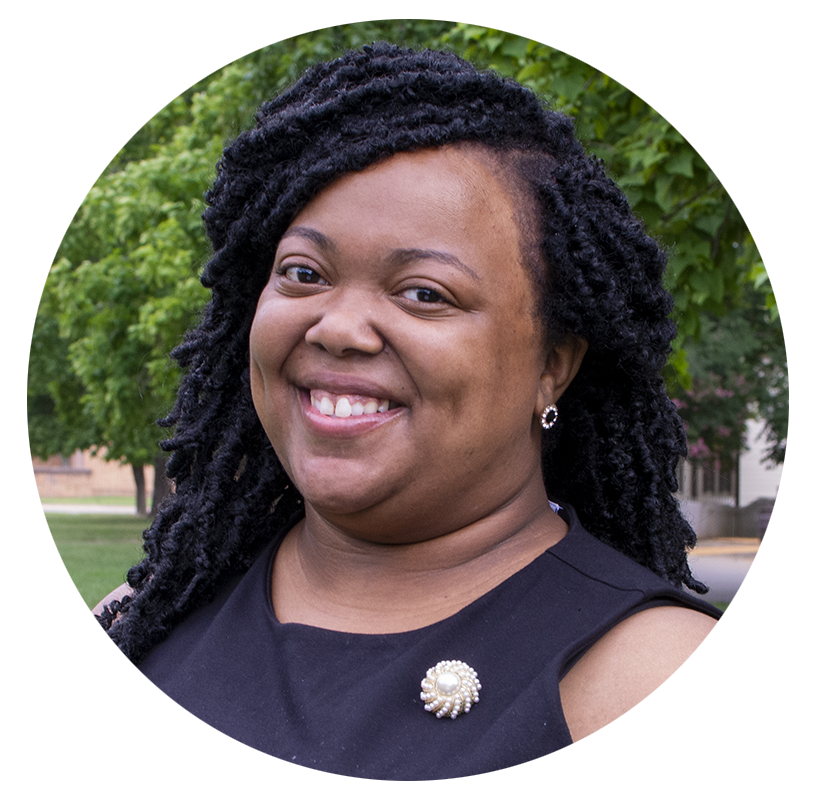
“At the start of Dr. Sabrina Dent’s presentation, she asked participants to share what identity markers were most salient for them. The identity categories that are most salient for me are my gender identity, sexual orientation, socio-economic status, race, and region of origin. As I shared and listened to others share, my belief that ‘we bring all of who we are to the spaces and places that we frequent’ was reaffirmed. Also, in seeing how different each participant was, I found hope that despite our differences, we were committed to religious liberty for ALL. …
Kristan Pitts / Charlottesville, Virginia
As a Black, Queer woman from the South, who has spent most of my life as a low wealth person, I am committed to fighting for a just and equitable world. That fight also includes religious liberty for ALL.”
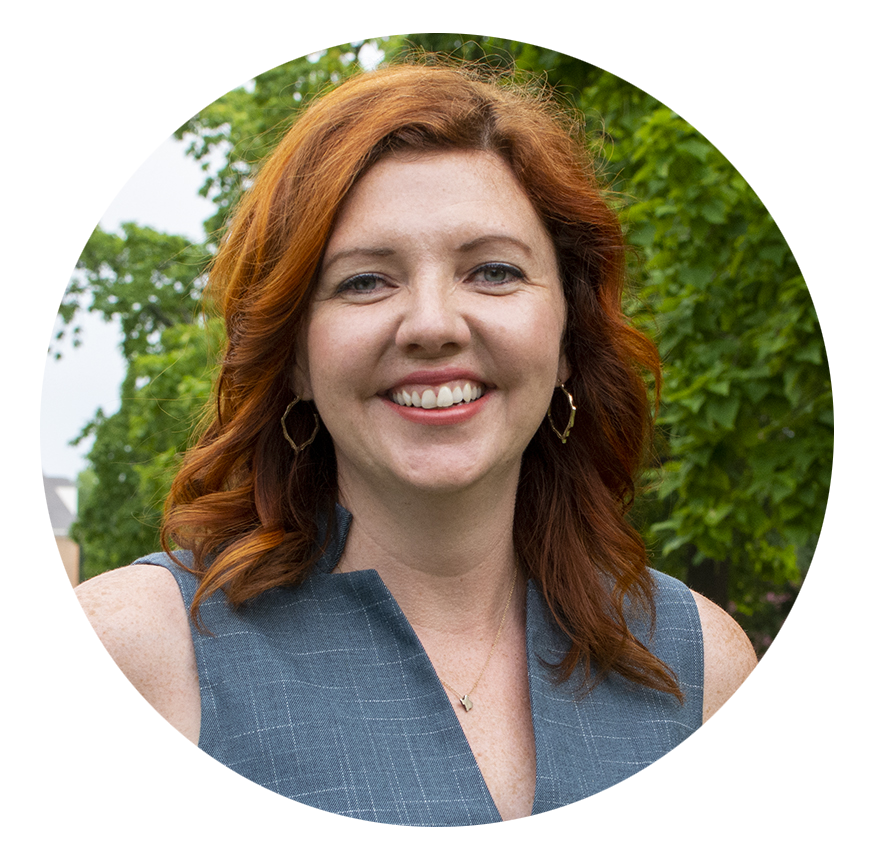
“During a session with Michael Meyerson, he told us about meeting Ruth Bader Ginsburg. He asked her to tell him the most important wisdom she could give to the next generation. She said without hesitation, ‘The growth of America is in the phrase “We the People.”’ This statement was profound for me because of the ‘we.’ We all have the power to change the arc of history for the better. And like [the historical interpreter portraying] Thomas Jefferson said, ‘Where we stopped, others must carry on.’
Erica Whitaker / Louisville, Kentucky
Building a better future begins with redeeming the growing edges of yesterday in order to create a better country for all people tomorrow. Religious liberty is the cornerstone.”
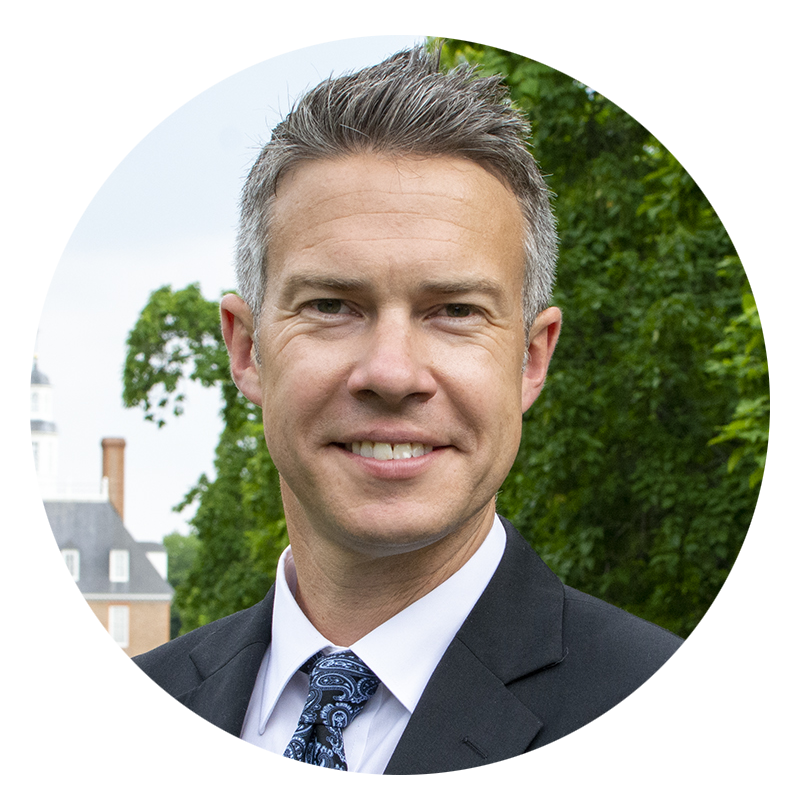
“After this historical grounding, the BJC staff conducted sessions that looked at religious liberty from a legal standpoint and provided specific considerations on how to better advocate for religious freedom in the present. I have always been passionate about religious freedom for all, but I have also often struggled with what exactly to do about it.
Christian McIvor / Greensboro, North Carolina
I found these sessions to be extremely valuable, as they set the stage for each of us to have an opportunity to practice an advocacy visit. Participating in this kind of training gave me the knowledge and confidence to prepare to do more involved advocacy work as I move forward in my life and ministry.”
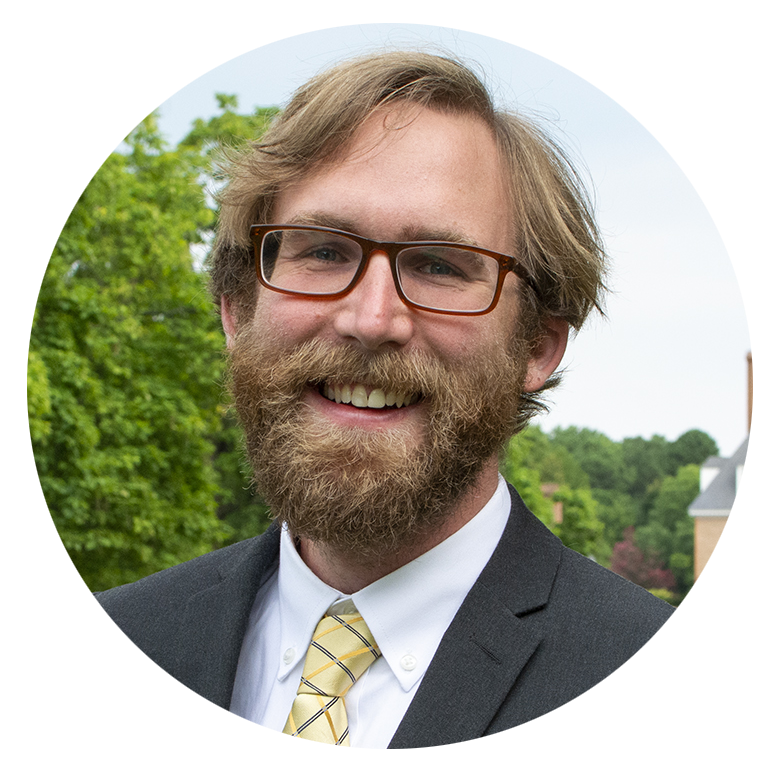
“Religious liberty for all is incredibly important to me, and it was wonderful building relationships with BJC Fellows and staff who also clearly hold this commitment. I’m very happy that we had a range of voices present. I am not Baptist, and am not religious, but I still felt very welcome and respected in our conversations around religious liberty, which is a crucial right for those of any religion as well as for those who are not religious. …
Bryan Kelley / Denver, Colorado
The ability to talk through religious liberty issues with other BJC Fellows — particularly with those who are members of or heads of houses of worship with members who may not agree with BJC’s commitments to religious liberty — really helped me appreciate BJC’s work even more.”
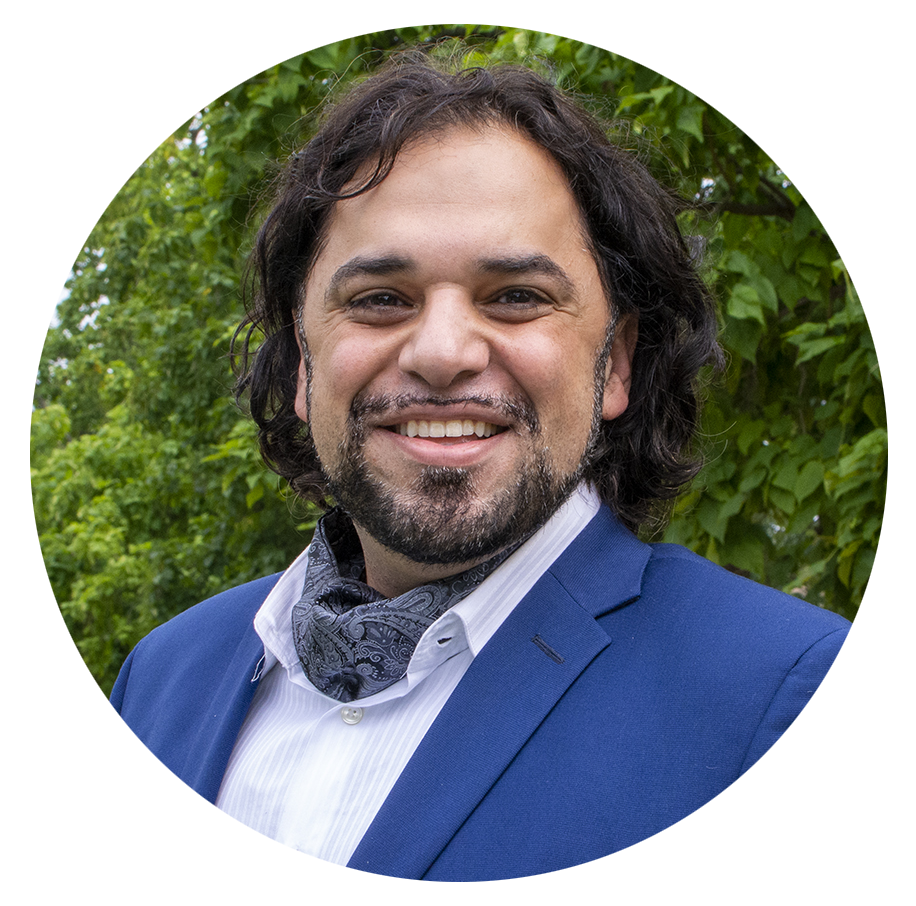
“The group cultivated an intimate and authentic bond in a very short period — so much so that we kept the brave conversations going all the way to the airport.
Adeel Zeb / Los Angeles, California
Overall, during the pandemic, I haven’t had a chance to eat out too much or socialize because of health concerns of myself and my loved ones. This environment of learning and growing with classmates was — to quote our friends Bill and Ted — “most excellent.” All the BJC staffers were super passionate, hardworking, and caring. They truly reflect the mission of the organization in an intentional and authentic manner.”
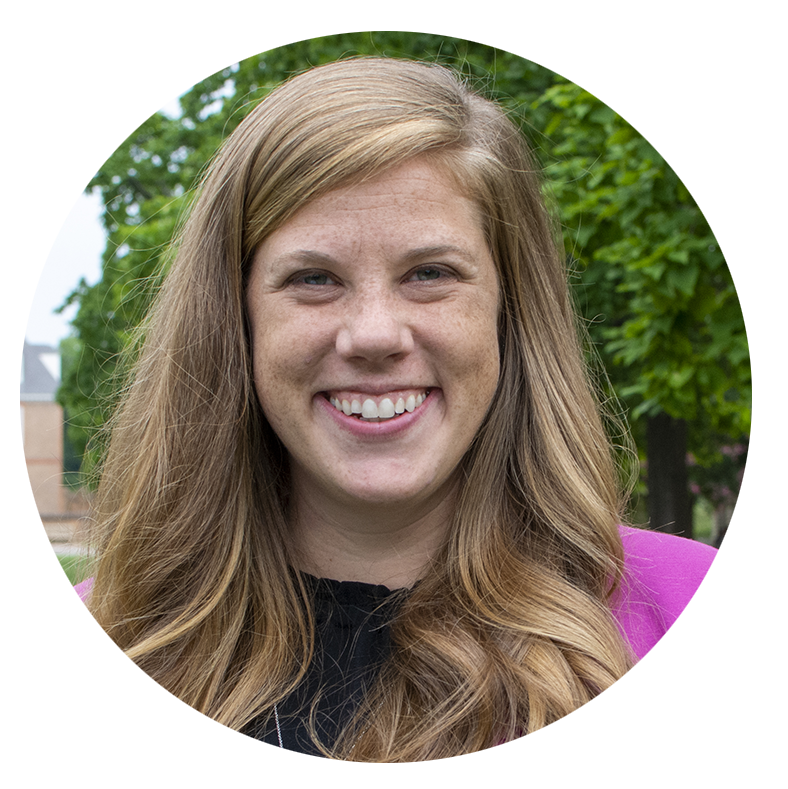
“Throughout our time together, we would learn to consider new perspectives and to look for the narratives that have been tucked away in the shadows. We would invite both Thomas Jefferson and Gowan Pamphlet [a Black preacher during the Colonial Virginia era] to help us consider what religious liberty looked like at our country’s founding from very different perspectives. We would tour the prison where dissenters who pushed back against established religion would preach from their jail cells. And we would stand in the middle of an archaeological dig site.
Brittany Stillwell / Little Rock, Arkansas
As we stood there, right smack in the middle of history, it occurred to me that this is what we were there to do. We were there to dig past layers of casual conversation and biased assumptions, to excavate narratives that had been disregarded and covered up, and to push beyond the prejudices and misconceptions that privileges some while limiting others, until we could begin to see the foundation of what held us together: a deep desire to protect the faith and freedom of all people.”
Apply to be a BJC Fellow!
There is no religious requirement for the program; those with six years or less experience in their profession are eligible.

